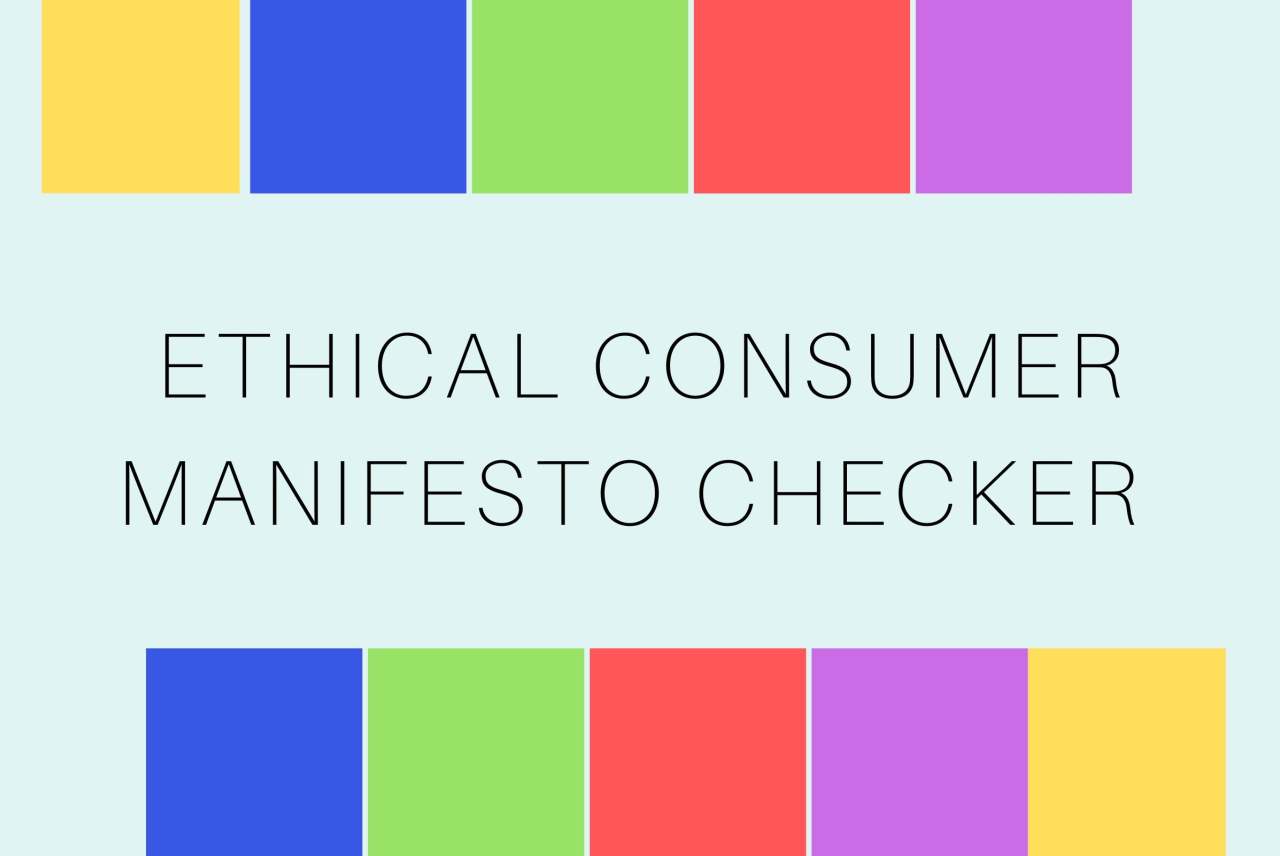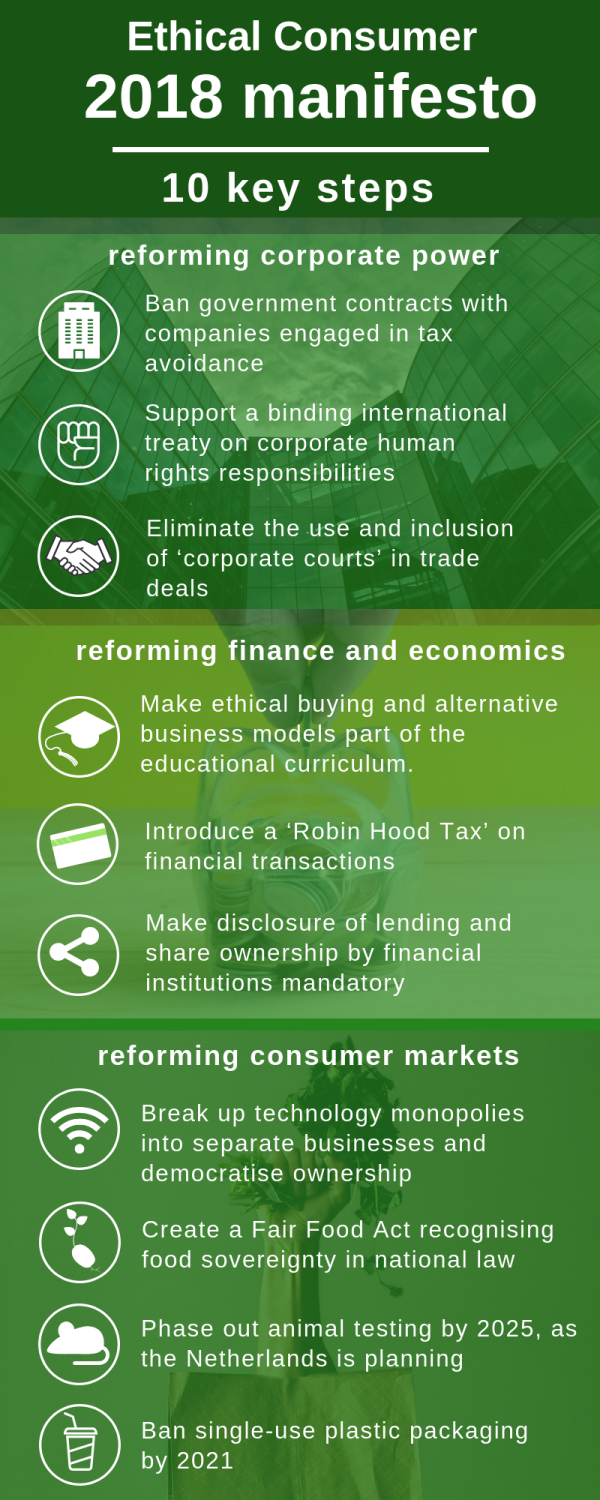With an election just around the corner, we thought you’d be interested to find out which of the political parties was most aligned to our own manifesto.
Our manifesto was put together with the help of readers in 2018 and contains demands on ten areas (see image to the right).
The manifesto check
We’ve looked through the manifestos of six major UK political parties and marked each manifesto out of 10. Parties gained a point for matching our manifesto ask, half a point when it contained a similar or related pledge and a minus point if they were opposed to something in our manifesto.
We understand that there are many more areas that people will be thinking about when they come to vote, such as Brexit, the NHS and schools funding, but we wanted to give readers a rough idea of where the party stood on those issues that you voted to be included in our manifesto.
Remember that our manifesto is focussed specifically on issues around ethical consumption. We don’t expect anyone to base how they vote solely on this article!
Who came out on top?
Perhaps unsurprisingly, the Greens come out on top with a score of 5.5. Their manifesto contains pledges on roughly 7 out of the 10 points in our manifesto.
They scored full marks for their pledge to phase out animal testing, end the inclusion of corporate courts in trade agreements, start teaching about alternative business models (including co-operatives) in schools and banning single-use plastic. These four crystal clear commitments put the Greens way ahead of the other parties in terms of their alignment with our own manifesto.
They also more broadly discussed tax avoidance, food sovereignty and international human rights.
Labour came in second, with a score of 4.
Labour scored a full mark for supporting the UN to introduce a binding international treaty on business and human rights. This commitment stated that they would support UN efforts to “make companies legally accountable for failing to prevent human rights abuses or environmental damage in their operations and supply chains, including criminal liability in the most serious cases.”
In a separate document that talked specifically about funding their manifesto commitments labour commit to implementing a financial transaction tax and so pick up a point for this. Labour then picked up four further half marks for discussing tax avoidance, procurement, tech monopolies, a more progressive food policy and single-use plastics.
The Liberal Democrats were third with 3 points but didn’t score full marks for anything. They did talk broadly about six topics from our manifesto and received half a mark for each. These were:
• tax avoidance
• human rights and corporations
• banking transparency
• a more progressive national food strategy
• alternatives to animal testing
• single-use plastics
Plaid scored 1.5 with a full mark for their pledge to ban single-use plastic and a half mark for their pledge on multinationals in regard to procurement.
Next came the SNP with one point for two broad commitments on tax avoidance and the right to food.
The Conservatives scored 0. They picked up half marks for some discussion on tax avoidance and single-use plastics but then lost a point for their pledge to “make the UK the leading global hub for life sciences after Brexit” which is likely to increase the use of animal testing.


